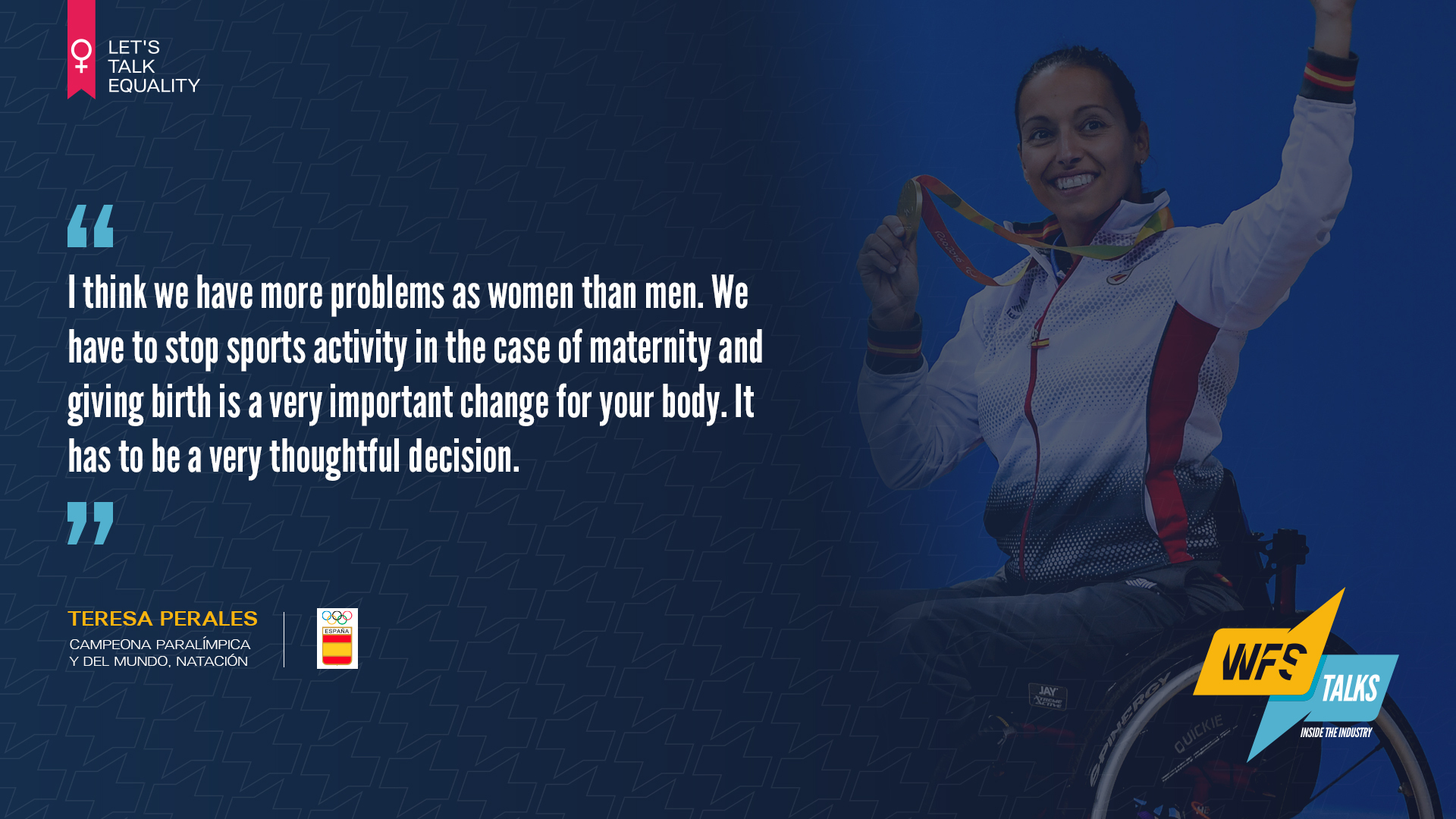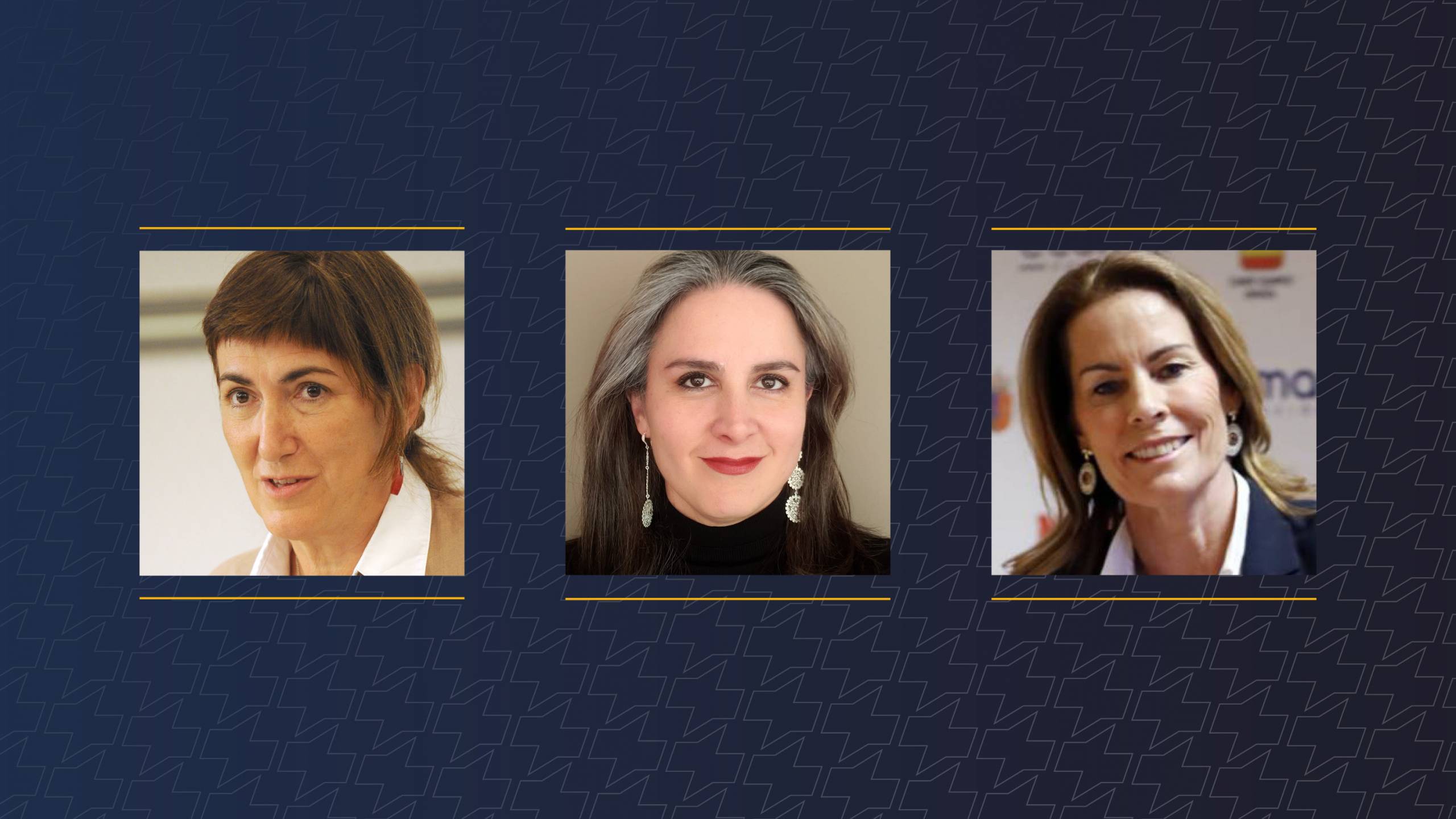World Football Summit’s #WFSTalksEquality series got underway on International Women’s Day with a series of industry leaders joining our challenge for greater gender equality across the sports industry.
Discussion on women leading off the pitch and how to add more female talent to sport were bookended by impassioned speeches from Consejo Superior de Deportes president Irene Lozano and her LaLiga counterpart Javier Tebas.
Lozano got things underway to inaugurate our #WFSTalksEquality series – that will be followed by equality webinars on the 8th of each month – by explaining how the Spanish government has significantly increased its investment in projects looking to pursue a level playing field in sport.
“The numbers are the ones that make the difference and, this year, the amount in the general budgets of the State for equality policies has increased 10-fold. We went from €1.4m to €14m,” said Lozano.
LaLiga president Tebas closed the event by challenging other organisations to follow in the footsteps of the Spanish top-flight, having outlined the league’s commitment to women leadership and representation at all areas of the business.
Tebas said: “It can’t be possible that in more than 60 football federations you have only one woman as chairman. It’s impossible that there are so few women.”
Two panels sat between those speeches, with Marisol Casado (World Triathlon president), Maria Sol Muñoz (CONMEBOL representative for FIFA) and Theresa Zabell (double Olympic gold medallist) digging even deeper into what it is like to be – and the challenges you face as – a leader in sports’ boardrooms as a woman.
Sol Muñoz explained how she feels a responsibility to help implement change from the very top, saying: “In this field those of us who are already in a truly unique position can do a lot. We can motivate our institutions so that there’s more inclusion of women.”
Casado also added that she felt fortunate that in the world of triathlon, gender equality was far more established since its inception: “World Triathlon was already born with active gender equality policies, so I have managed to become president because the culture was already in place.”
Finally, Zabell said that although great strides have been made in delivering greater gender equality in sport, there is still much to be done: “For the purposes of participation, there has been a great deal of progress, but I believe there’s a great deal to be done in terms of the direction of sport and the media coverage that women have in sport.”

Focusing on life as a female athlete, respective Olympic and Paralympic champions Carolina Marin and Teresa Perales were joined by former Spain international Ainhoa Tirapu to look at the hurdles they faced in becoming professionals.
Marin first highlighted the disparity between sportsmen and sportswomen: “I don’t think it’s fair for a woman to have less than a man for doing the same job. In sport, what we must achieve as a society is that athletes are rewarded for what they achieve, not for being a man or a woman.”
Tirapu went on to say that she didn’t even contemplate carving out a profession in football when she started playing the game as there just weren’t visible opportunities: “My original goal wasn’t to be a professional footballer because there was no possibility. The differences between men’s and women’s football have always been huge, and they remain so – especially economically.”
Perales also raised the internal conflict that women face as athletes when they want to start a family that will force them to put their professional life on hold: “I think we have more problems as women than men. We have to stop sports activity in the case of maternity and giving birth is a very important change for your body. It has to be a very thoughtful decision.”

